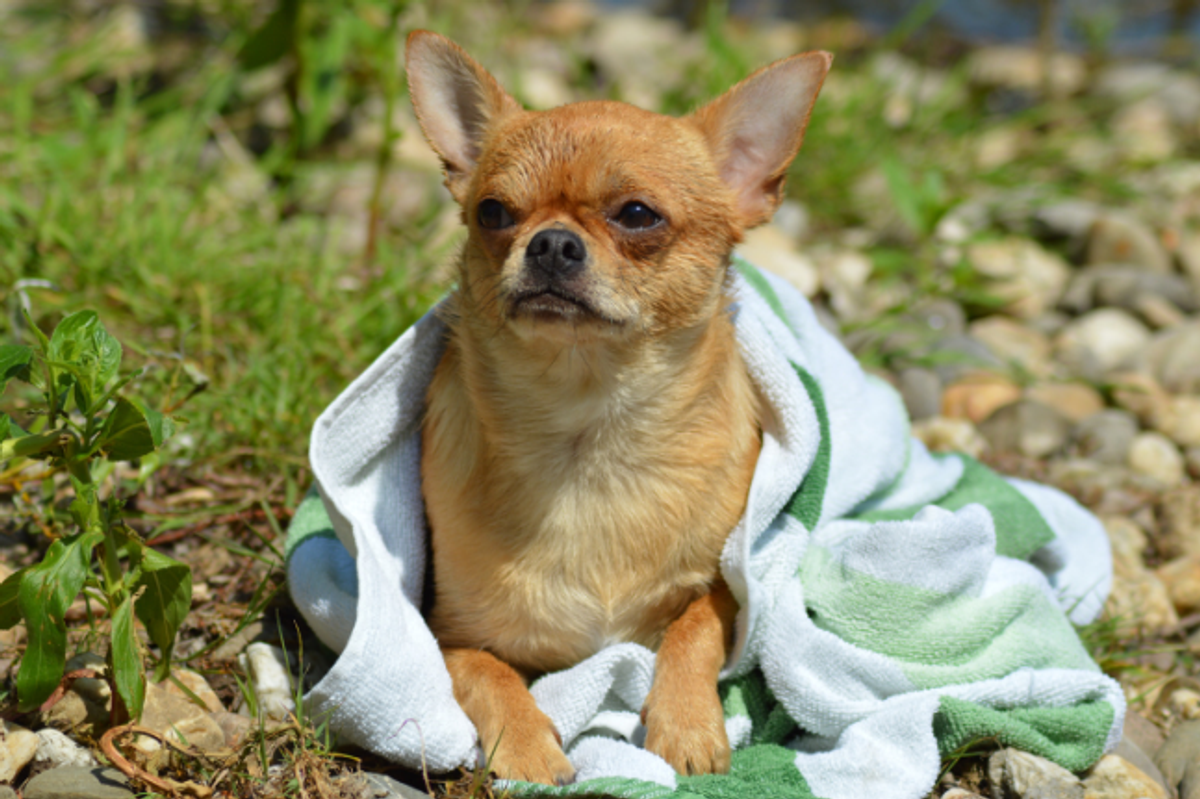Rescue Chihuahua has cutest reaction when foster mom speaks Spanish to him for the first time
Of course he did, he's a native speaker.
A Chihuahua in a blanket.
Monica Matute, a dog-lover who chronicles the rescues she fosters on TikTok, was having a hard time getting through to Nacho, the Chihuahua. But everything changed the moment she stopped giving him commands in English and switched to Spanish.
In a viral video with over 14 million views, Matute casually asks Nacho, "¿Qué pasó?" ("What happened?"), and his pronounced ears immediately perk up, as if to say, “You speak my language!” She then tries out a few more phrases in Spanish, which translate to "Let's go outside," "Come on," and "Want to eat?" and all of them got Nacho’s full attention.
@themobtrio Our little Latin boy! I hope his previous family is doing okay — Nacho gives me the impression he was previously loved ❤️🩹🥺 #fyp #rescuedog #fosterdog
"Suddenly crying thinking about how many dogs that aren't adopted because they aren't trained, but really they just speak a different language," Fable wrote in the comments. "I think he knows Spanish, SIR. HE IS A NATIVE SPEAKER!!!" Nataleelifts added.
Once they spoke the same language, their relationship blossomed
Matute and Nacho got along great, and the little Chihuahua helped change Matute's opinion of his breed. "I was not the biggest fan of Chihuahuas," she said in one clip. "I had this idea that they were like what you see in the movies: barky, opinionated, and a little dramatic. And don't get me wrong, Nacho is definitely all of those things — but to my surprise, it's what's made fostering him so fun."
"He's the kind of dog that will follow you everywhere, and is just perfectly content just being your shadow. He loves to burrow into blankets, and he's happy to nap with whoever's closest," she continued.
After spending a few weeks with Matute, it was time for Nacho to move on to the Oregon Humane Society in Portland. "He has been such a nuthead to foster. He's been so funny," she admitted. "There are so many emotions that come with this, but I am really proud of and holding onto the fact that he was brought into foster because we wanted to see how he would acclimate in a home, and he truly adjusted so beautifully."
@themobtrio Nacho is OFFICIALLY available for adoption through the @Oregon Humane Society in Portland ❤️ #fyp #rescuedog #fosterdog
The good news was that in less than 24 hours, Nacho was adopted by Nancy Garza-Harris and her husband, Rick, from Seattle. The couple has changed the dog’s name to Rogelio Montoya, an homage to Inigo Montoya from the film The Princess Bride. But Garza-Harris mostly calls him “Mijo,” meaning “my son.”
Can dogs tell the difference between human languages?
To put it simply, yes. Studies that put dogs in MRI machines found that they can distinguish real human words from made-up gibberish. They can even distinguish between familiar and unfamiliar languages. “Even more impressive, when dogs heard the language they were most familiar with, their brains showed stronger activity,” HappyPupManor writes. “This suggests that not only can dogs recognize human language, but they also process the specific language spoken most often by their families."
Nacho’s story shows how making a small change in how we relate to pets and people can completely change a relationship. It’s another great reminder that everyone has a story and a past, and when we make the effort to see them for who they are, beautiful things can happen.

